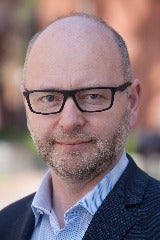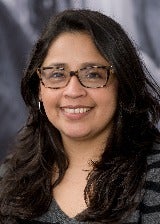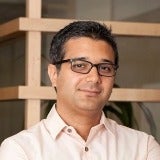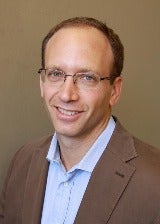White extremist road show moves from Charlottesville to D.C.
One year has passed since the Aug. 11 and 12 protests in Charlottesville, Va., where America’s racial divide unfolded with tragic consequences as violence claimed a life and left the nation shaken. Now, organizers of the protest plan an anniversary “White Civil Rights Rally” near the White House in Washington, D.C. What have we learned one year later? Can civil unrest occur with civility? What’s America’s tolerance for intolerance? Here’s what USC experts have to say …
Contacts: Gary Polakovic, (213) 740-9226 or polakovi@usc.edu, Emily Gersema (213) 821-2483 or gersema@usc.edu.
What prompted a rise in white nationalism?
 “The watchword is ‘white genocide.’ White nationalists are trying to swim against the tide of demographic change where people of color will be the majority in the United States by 2045. They feel they are losing their country due to immigration and lost confederate monuments, after the election of a black U.S. president,” said Erroll Southers, professor at the USC Price School of Public Policy.
“The watchword is ‘white genocide.’ White nationalists are trying to swim against the tide of demographic change where people of color will be the majority in the United States by 2045. They feel they are losing their country due to immigration and lost confederate monuments, after the election of a black U.S. president,” said Erroll Southers, professor at the USC Price School of Public Policy.
Noteworthy:
- The rally won’t eclipse the big KKK rally in D.C. in 1925, but it will help legitimize bigotry, alter American values and recruit new adherents.
- Critical mass in D.C. may prove elusive unless extremists conceal themselves from social media surveillance.
- Right-wing solidarity protests may occur in localized communities across the country on Aug. 11 and 12.
Suthers is an expert in counterterrorism, homeland security and public policy. He is director of the Safe Communities Institute at the USC Price School, Homegrown Violent Extremism Studies and professor of national and homeland security at the USC Price School.
southers@usc.edu or (213) 740-9961
What have we learned from Charlottesville?
 “Charlottesville was a wake-up call for this country and woe unto us if we fail to heed the warning that hatred continues to thrive among us. A year has passed, but its instigators have not gone away. I don’t think we’ll ever see the end of this dark side of our humanity. However, we can create the kind of community and values that will be stronger than the hatred we know we will face. It’s a task we must all undertake,” said Stephen Smith, executive director of the USC Shoah Foundation — The Institute for Visual History and Education.
“Charlottesville was a wake-up call for this country and woe unto us if we fail to heed the warning that hatred continues to thrive among us. A year has passed, but its instigators have not gone away. I don’t think we’ll ever see the end of this dark side of our humanity. However, we can create the kind of community and values that will be stronger than the hatred we know we will face. It’s a task we must all undertake,” said Stephen Smith, executive director of the USC Shoah Foundation — The Institute for Visual History and Education.
mith is focused on finding strategies to optimize the effectiveness of genocide survivor testimonies for education, research and advocacy.
smithsd@usc.edu or (213) 740-6003
How can society counter the rise of hate groups?
 “We can prevent the kind of hatred that we saw in Charlottesville through education, which makes teachers all the more vital to our communities. With the right training and tools, we know educators can be enormously influential in leading students to recognize and counter hate, and to develop empathy, understanding and respect,” said Claudia Ramirez Wiedeman, director of education at the USC Shoah Foundation – The Institute for Visual History and Education.
“We can prevent the kind of hatred that we saw in Charlottesville through education, which makes teachers all the more vital to our communities. With the right training and tools, we know educators can be enormously influential in leading students to recognize and counter hate, and to develop empathy, understanding and respect,” said Claudia Ramirez Wiedeman, director of education at the USC Shoah Foundation – The Institute for Visual History and Education.
crwiedem@usc.edu or (213) 821‑5299
Does social media influence make things worse?
 “Extreme movements can emerge through social networks. We have seen several examples in recent years, such as the protests in Baltimore and Charlottesville, where people’s perceptions are influenced by the activity in their social networks. People identify others who share their beliefs and interpret this as consensus. In these studies, we show that this can have potentially dangerous consequences,” said Morteza Dehghani, a psychologist in the USC Dornsife College of Letters, Arts and Sciences and a researcher at the Brain and Creativity Institute at USC.
“Extreme movements can emerge through social networks. We have seen several examples in recent years, such as the protests in Baltimore and Charlottesville, where people’s perceptions are influenced by the activity in their social networks. People identify others who share their beliefs and interpret this as consensus. In these studies, we show that this can have potentially dangerous consequences,” said Morteza Dehghani, a psychologist in the USC Dornsife College of Letters, Arts and Sciences and a researcher at the Brain and Creativity Institute at USC.
Dehghani is an expert in semantic analysis of political and moralized language in the context of social media, including Twitter. One of his recent studies found social media posts signal when a protest may turn violent.
mdehghan@usc.edu or (213) 740-4382
How has social media changed political discourse?
 “Charlottesville made clear how social media enables groups to propagate uncontested falsehoods. For example, Facebook serves the information equivalent of ideological comfort food; it’s literally what you ‘like.’ Since multiple narratives of the same event never intersect, there’s no truth check. Inability to sort fact from fiction accelerates polarization in the body politic,” said Gabriel Kahn, a professor at the USC Annenberg School for Communication and Journalism.
“Charlottesville made clear how social media enables groups to propagate uncontested falsehoods. For example, Facebook serves the information equivalent of ideological comfort food; it’s literally what you ‘like.’ Since multiple narratives of the same event never intersect, there’s no truth check. Inability to sort fact from fiction accelerates polarization in the body politic,” said Gabriel Kahn, a professor at the USC Annenberg School for Communication and Journalism.
Noteworthy:
- Unlike Charlottesville, the rally in D.C. benefits by proximity to the White House whose occupant behaves outside the norms.
- Social media empowers “white identity politics” by helping adherents organize while insulating them from facts.
- Facebook is the 21st century newsstand — nearly half of its 2.2 billion users rely on it for news.
- Legacy media no longer has clout to define normal behavior or what’s out of bounds.
- Algorithms atomize news across social media audiences to give more weight to what people want than what’s true.
Kahn is an expert in the changing nature of the news industry, media business and entrepreneurship and the economic models of the news industry. He co-runs the USC Annenberg School‘s Media, Economics and Entrepreneurship program. He worked as a newspaper correspondent and editor for 20 years, including as a Wall Street Journal bureau chief in Hong Kong, southern Europe and Los Angeles.
gabriel.kahn@usc.edu or (213) 740-0448



